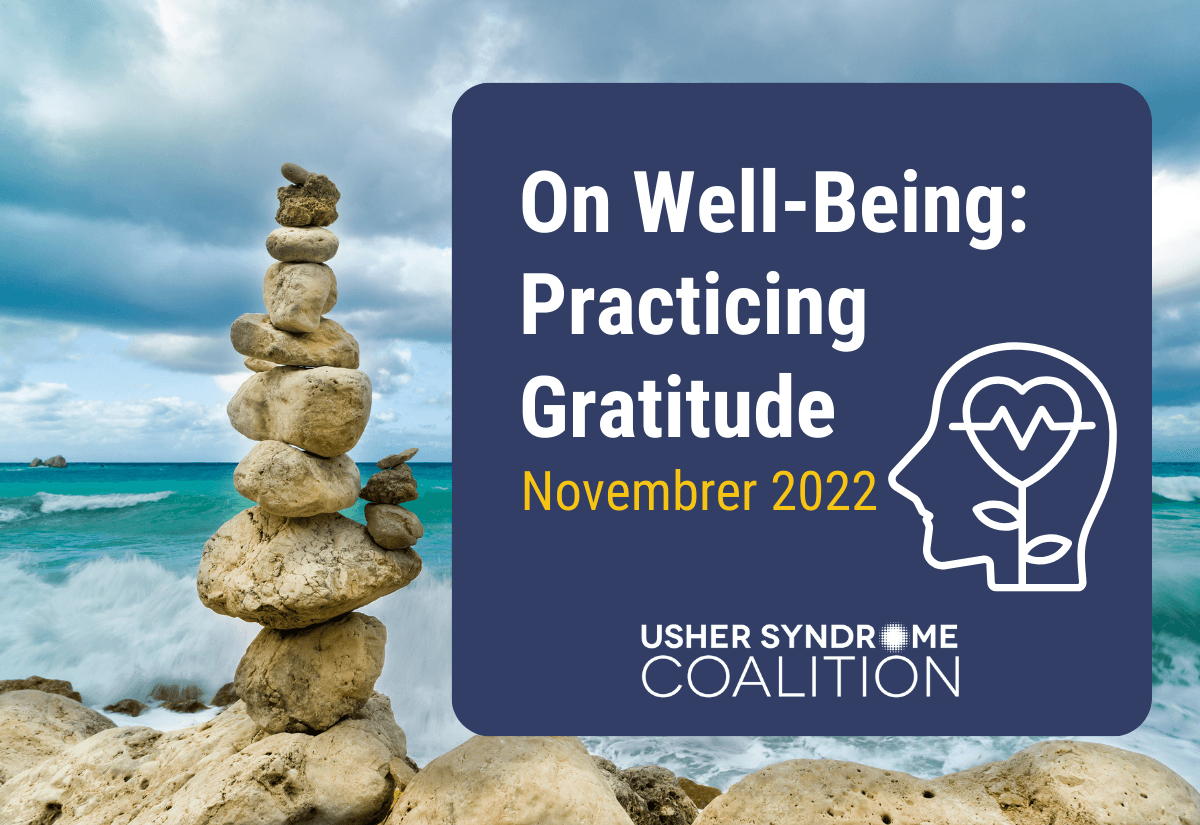
The Importance of Gratitude to Help Lead to Acceptance
As defined by the Oxford dictionary, gratitude is the quality of being thankful; readiness to show appreciation for and to return kindness.
In the “Science Behind Gratitude,” the author notes that “The best way to reap the benefits of gratitude is to notice new things you’re grateful for every day. Gratitude journaling works because it slowly changes the way we perceive situations by adjusting what we focus on. Opening your eyes to more of the world around you can deeply enhance your gratitude practice.”
With Usher syndrome, it may seem paradoxical to advise one to simply “open your eyes”. But as cliche as it sounds, sometimes it really does take going blind to truly appreciate the beauty that exists in the world today.
If we approach gratitude with optimism and accept that it is not an easy habit to build, it can carry over to other aspects of our lives. It may allow us to feel hopeful that Usher syndrome treatments WILL happen while holding space to acknowledge that research is a complex and slow-moving process.
Just as a watched pot doesn’t boil, if we focus too closely on research only to become frustrated by how slowly it advances, we can easily overlook just how far we’ve already come.
Read more about how gratitude affects anxiety and grief here:
https://taylorcounselinggroup.com/blog/how-gratitude-affects-anxiety-and-grief/
"I cannot pretend I am without fear. But my predominant feeling is one of gratitude. I have loved and been loved; I have been given much and I have given something in return… Above all, I have been a sentient being, a thinking animal, on this beautiful planet, and that in itself has been an enormous privilege and adventure.”
- Oliver Sacks, Gratitude
Neurologist, Naturalist, Historian of Science, and Writer







